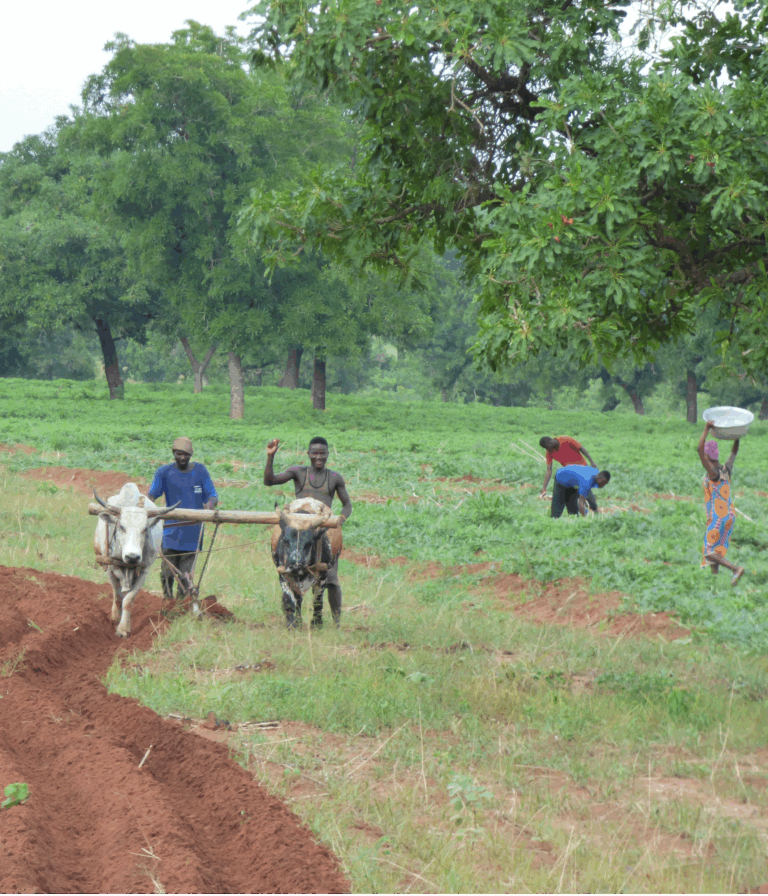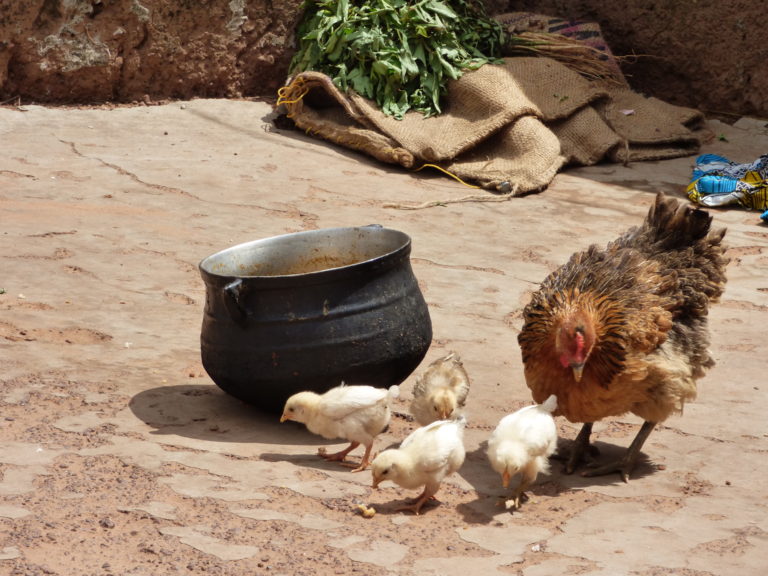Research
My research interests include the role of smallholder livestock agriculture in sustainable food systems, how agroecology can support nutrition and health, linkages between child undernutrition, diets, and infection, and the intersection of diet and planetary health.
Current research

Agricultural diversification to reduce the impacts of precipitation shocks on child and adolescent undernutrition
Climate change adaptation, Small-scale livestock, Agroecology, Undernutrition
In the world’s already vulnerable regions, climate change will put millions more people at risk of food insecurity and undernutrition due to increasing temperatures and erratic weather patterns1. Diversification and integration of crops and livestock on farms is a potential strategy to improve human nutrition, increase resilience to climate shocks, and support healthy agroecosystems.
This research project uses 10+ years of panel data from the Living Standards Measurement Study (LSMS) to investigate whether crop-livestock diversification and integration can mitigate the impact of precipitation shocks (i.e., drought or flood) on child and adolescent undernutrition in Tanzania, Ethiopia, Uganda, and Malawi. By combining geospatial, agricultural, and health data, this study will identify agroecological strategies that can increase resilience against weather shocks.

Implementing the Planetary Health Diet in healthcare facilities in Germany
Climate change mitigation, Food systems transformation, Planetary Health, Sustainable diets
The way we eat affects our planet and our health. Shifting diets towards sustainable and healthy plant-forward dietary patterns is essential for mitigating climate change, reducing biodiversity loss and habitat destruction, and reducing non-communicable chronic diseases1,2. Institutions, including healthcare facilities, have an important role in transforming our food system.
I am co-leading the NURISHD project. This research project examines the environmental footprint and nutritional quality of food service in German healthcare institutions and evaluates the feasibility of shifting dietary patterns toward the Planetary Health Diet. We are analyzing food procurement data to assess the status quo of food service in select nursing homes and hospitals. In addition, we are conducting interviews with food service staff to assess knowledge and attitudes and identify barriers to implementing sustainable diets. Read more about the NURISHD project here.
Past research

Impact of a Homestead Food Production program on child undernutrition in Bangladesh
Infectious disease, Nutrition-sensitive interventions, Small-scale livestock, Undernutrition
Globally, 22% of children are stunted1, and half of children and two-thirds of women are estimated to suffer from micronutrient deficiencies, with the highest burden in southeast Asia2. Nutrition-sensitive agricultural interventions address undernutrition by tackling its underlying determinants including poor diets; inadequate access to safe water, sanitation, and hygiene; and inadequate caregiving resources3.
My postdoctoral research examines the impact of a nutrition-sensitive intervention on child undernutrition in Bangladesh. FAARM (Food and Agricultural Approaches to Reducing Malnutrition) was a cluster-randomized controlled trial conducted in Bangladesh. The 3-year Homestead Food Production intervention promoted year-round production and consumption of nutritious foods through year-round home gardening, poultry rearing, and nutrition and hygiene education. My specific research has focused on investigating the intervention’s impact on poultry production and management, and the role of the poultry component in improving women’s and children’s egg consumption. As part of the FAARM team, I am also evaluating the impact of the intervention on children’s prevalence of diarrhea and acute respiratory infection, and I am a co-author on several other in-progress publications related to the trial. Read more about the FAARM trial here.

Prenatal and postnatal impacts on health
Nutrition, infectious disease
Adverse circumstances during key developmental phases in utero can have lasting consequences on health in later life. Whether exposure to such adverse circumstances interacts with the postnatal environment remains poorly understood in humans. This project aims to understand prenatal and postnatal interactions through a set of quasi-experimental studies examining nutritional shocks such as droughts in early life and growth/malaria in later childhood. This project is an interdisciplinary research collaboration with the Statistics and Econometrics research group at the University of Mainz and epidemiologists at the Potsdam Institute for Climate Impact Research. Read more about the project here.

Household livestock ownership and child anemia in Ghana
Infectious disease, Small-scale livestock, Undernutrition
Anemia affects over 800 million women and children globally, with severe consequences on cognitive development, work capacity, and the risk of mortality1. Anemia is a complicated disease that can be caused by micronutrient deficiencies, infectious diseases, and genetic hemoglobin (Hb) disorders2.
My PhD research examined linkages between household livestock ownership and anemia in children, investigating the hypothesis that rearing livestock could alleviate anemia by providing a source of micronutrient-rich animal-source foods, yet could also exacerbate anemia by exposing children to zoonotic pathogens. I conducted a cross-sectional study of children under 5 years old in southern Ghana, in which I collected and analyzed survey data, and blood and stool samples. My research showed that half of children suffered from anemia and that 87% had at least one bacterial enteropathogenic infection. My overall findings suggested that livestock ownership, particularly of cattle and small livestock, was associated with lower prevalence of anemia in children, yet also presented risks of infection through fecal exposure and foodborne routes. Additionally, I found that infection with certain enteroinvasive bacterial pathogens was associated with inflammation and anemia in children.

Reducing the carbon footprint of food service at the University of Michigan
Climate change mitigation, Sustainable diets, Choice architecture intervention
Higher education institutions are essential leaders in reducing greenhouse gas emissions through climate mitigation policies. In 2019, the University of Michigan launched the President’s Commission on Carbon Neutrality to examine ways to reduce its carbon footprint. As part of the Food Analysis Team of this commission, I supported the development of guidelines for the University to reduce greenhouse gas emissions from the University dining halls.
Building on this work, I assessed the impact of a “Sustainable Mondays” initiative at the University dining halls, in which red meat dishes were reduced one day per week, and examined scenarios in which beef and other meats were substituted with lower-emission proteins to assess potential strategies for reductions in greenhouse gas emissions and cost. This study suggested that there is considerable potential for higher education institutions to reduce greenhouse gas emissions through simple replacements of red meat with plant-based proteins.